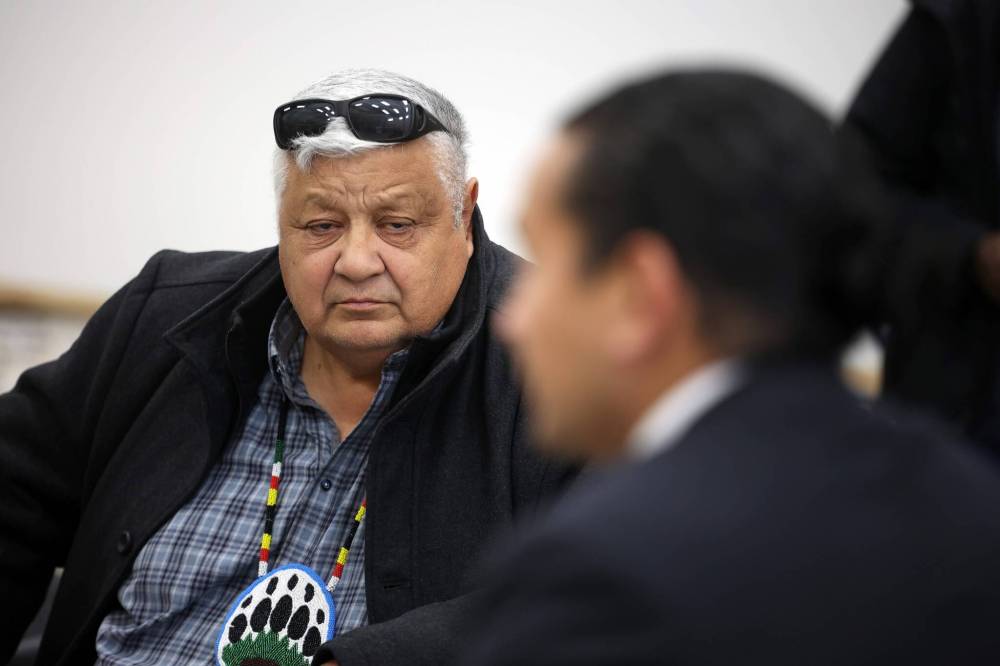Gambler First Nation achieves certification
Advertisement
Read this article for free:
or
Already have an account? Log in here »
We need your support!
Local journalism needs your support!
As we navigate through unprecedented times, our journalists are working harder than ever to bring you the latest local updates to keep you safe and informed.
Now, more than ever, we need your support.
Starting at $15.99 plus taxes every four weeks you can access your Brandon Sun online and full access to all content as it appears on our website.
Subscribe Nowor call circulation directly at (204) 727-0527.
Your pledge helps to ensure we provide the news that matters most to your community!
To continue reading, please subscribe:
Add Brandon Sun access to your Free Press subscription for only an additional
$1 for the first 4 weeks*
*Your next subscription payment will increase by $1.00 and you will be charged $20.00 plus GST for four weeks. After four weeks, your payment will increase to $24.00 plus GST every four weeks.
Read unlimited articles for free today:
or
Already have an account? Log in here »
Hey there, time traveller!
This article was published 11/01/2024 (659 days ago), so information in it may no longer be current.
The Gambler First Nation, an Ojibway community situated about 190 kilometres northwest of Brandon, has achieved certification in financial management.
The confirmation came from the First Nations Financial Management Board (FMB), created in 2007 to support First Nations across the country by developing standards around financial management systems and good governance.
For Gambler First Nation, the Financial Management System (FMS) certification means their finance and administrative governance practices meet FMB’s standards, which are recognized internationally.

Gambler Chief David LeDoux said the certification gives the First Nation the confidence to go forward. "If your finances are in order, the world is your oyster," he said. (File)
Gambler Chief David LeDoux said the certification gives the First Nation the confidence to go forward.
“If your finances are in order, the world is your oyster. I want to work with First Nations that understand money and the importance of looking after things the way they should be looked after,” said LeDoux in a news release.
The process to achieve the certification took five years and started with the First Nation passing a law that provided it with the framework on how to manage its financial affairs, said Harold Calla, executive chair of First Nations FMB.
Then, council had to create policies and procedures that would be needed to implement that law. It also had to develop human resources policies and provide five years of financial statements to FMB.
When Premier Wab Kinew learned of the certification on Wednesday, he said it’s “startling to see the capacity that they have to invest in our local economy, whether that’s in the Westman or Parkland regions, or really anywhere in the province.”
“I celebrate the work of Gambler First Nation,” Kinew told the Sun.
“And I think that this is a shining example of economic reconciliation. I think economic reconciliation, meaning creating more opportunity for people in the province, is probably one of those areas everyone can agree on, as an area we should focus on right away.”
There are 39 First Nations in Manitoba that are working with the FMB and are in various stages of certification. Gambler is one of six that has received certification.
It’s optional for First Nations to go through the certification process, said FMB’s Calla, but once they do, he added, it demonstrates to all stakeholders in Canada that investment in Indigenous communities that are certified will be managed well.
“This is a huge deal for Gambler and a step in the right direction in terms of First Nations being able to manage their affairs,” said Calla, who is an accountant and member of the Squamish First Nation in British Columbia.
“It’s a much different mindset than being a recipient of a contribution agreement from the Department of Indian Affairs and managing that money,” he said.
“More and more communities are now entering into arrangements where they have substantial owned source revenue or settlements. And this permits them a process to manage increased owned source revenue or settlement in a way that is accountable and transparent.”
Gambler First Nation’s current economic development activities include oil drilling, trucking and paving contract work, according to a news release from FMB.
Gambler is also a 20 per cent equity owner in a new potash mine pilot project near the Manitoba-Saskatchewan border.
» mmcdougall@brandonsun.com
» X: @enviromichele
